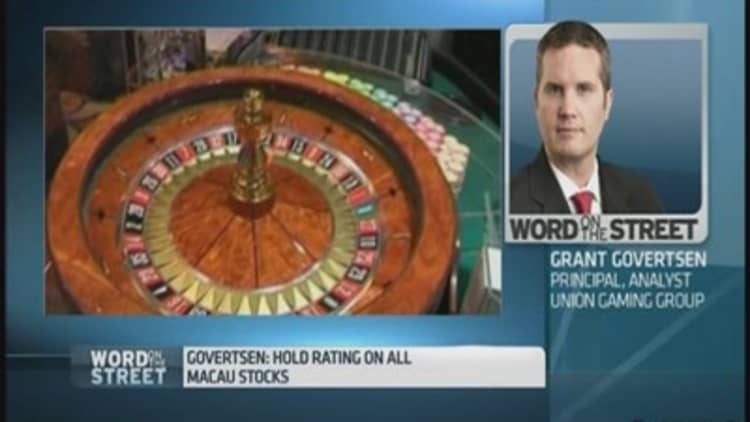Gambling revenue in Macau, the world's biggest gaming hub, fell last year for the first time since casinos were liberalized in 2001, as a Beijing campaign against conspicuous spending by public officials led to a decline in wealthy players.
Revenue fell 2.6 percent in 2014 to $44.1 billion - almost seven times that of Las Vegas - showed data released on Friday by Macau's Gaming Inspection and Coordination Bureau.
In December, a record 30.4 percent on-year drop compared with analyst forecasts ranging from 29 percent to 33 percent, and constituted the seventh straight monthly decline.

Casino executives and analysts have linked revenue decline to a campaign against extravagance and corruption initiated by President Xi Jinping, who visited the former Portuguese colony on Dec. 19-20 to celebrate the 15th anniversary of its handover to China.
Read MoreIs Macau's gaming industry played out?
Xi's campaign, they said, has deterred high-betting VIPs from visiting Macau's casinos, which have consequently lost a combined $58 billion in market value over the past six months.
Shares of casinos listed in neighboring Hong Kong fell 32 percent to 51 percent in 2014, compared with a 2 percent decline in the benchmark .
Macau, a special administrative region like Hong Kong, is the only place in China where casino gambling is legal. A government-sanctioned casino monopoly ended in 2001.
The central government in Beijing wants the southern territory to diversify its economy into culture, sports and retail. As such, new casinos are assessed on their non-gaming amenities when renewing gambling licences.

